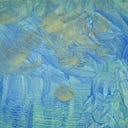Oh, the worlds that hiss like surf away…
I couldn’t resist picking up a copy of this little book of poems for classroom recitation. I suppose it’s more of a booklet, really. Someone has a stack of them (not reprints) on ebay, so you too could have a copy for the princely sum of $1.25 (plus shipping several times that amount).
It dates to 1950 and I found it fascinating to imagine classrooms of children reciting these poems, little soloists, then row by row, then by gender (sorry, only two options, it’s still 1950 just like in the House Freedom Caucus) and in chorus. The editor wisely picked singsong poetry and, of course, mostly poems of delicate sensibility. Safe things. Relatively easy to understand things. The children aren’t going to chant Rimbaud or Hart Crane or Gertrude Stein (although Gertrude has lots of great singsong poetry, and so does Rimbaud for that matter). And with Stein, the children could have had a living embodiment of the thesis that a poem “should not mean but be.” For example, if the editor had included “Susie Asado,” or a poem along those lines, the children could have been plunged into the world of non-referential art at an early age. What a rush! But that would not have fit in with the Cold War notions of pedagogical duty. A teacher who taught that sort of poetry might have come under scrutiny as a goddamn red. The dreaded Beatniks were soon to appear in America and strut and tear things up and feed from dumpsters and caterwaul and breed like stray cats! And they would do it all to the sound of bongos! We wouldn’t want to contribute to that America. So the poems mostly hearken backwards to sweet Romantic notions of nature as the Great Teacher and the chief divinity we will know on earth while still paying lip service to “God capital G” on our money and in our political documents.
I love imagining the children reciting Sara Teasdale’s “Barter.” The poem has a seamy undercurrent that teachers can deny and children of a young age wouldn’t probably catch at all, anyway. It sure does sound like a high-toned apologia for down and dirty fun. At least those closing lines seem to drift that direction. But poor Sara Teasdale. The ultimate sheltered life, sheltered poet, and things still took a turn for the worst in her life that was like a gilded cage. The Napoleonic heir was less sheltered than the divine Sara T. And why ever was she chasing after weird Vachel Lindsay? Wasn’t he gay? Okay, I suppose he was bi. Most of his daylight time was spent with female romantic partners. Pan? Something like that. I remember reading many references to various dalliances. Maybe she was too, and it was a smoldering literary, adulterous comfort marriage? Nothing wrong with comfort. And certainly we shouldn’t judge his suicide and hers, since life was dreadful back then. There’s no romanticizing that time period for logical people…imagine your options for medical treatments for anything from mental illness to heart disease, diabetes, kidney issues…well, any organ whatsoever. Medicine sucked. And it seems likely Sara might have benefited from modern medical options. I don’t really know the poet’s biography well, so please take my probably blasphemous speculation as just that, with a grain of salt. No, make that half a grain of salt. One thing we can learn from Sara’s life is not to marry someone simply because they are a fan of your poetry. That didn’t work out at all for her. Does that ever work out? It sounds like a dreadful plan. It’s always much better to have a romantic partner who has zero interest in your creative writing. It makes for quieter rooms and better meals. It just does.
I looked back at Sara’s poetry today. I hadn’t read her in countless years. I had consigned her to the “too precious past” years ago. Yet, revisiting her, one sees why people loved her poetry, why some people still love her poetry. It’s singsong and accessible and yes, admittedly it is a half-step away from greeting card verse, but it’s old school Romanticism through and through. When something has been dead long enough, it becomes interesting again. It’s all about the stars above her head and the sea’s cold hissing. She’s as self-absorbed as your average Insta selfie-queen, so she should have that “in” to our time. I’m sure many contemporary poetry readers find her work totally cringe. But she throws Imagism and the nineteenth century Romantic lyric in a pot, adds a smattering of The Greek Anthology, and voila! : the image of the Poetess in an Isadora Duncan gown is writ large. She’s an adulterated Sylvia Plath without the real sick image burns. But that’s what is expected of “lady poets” or poetesses in that period. Her poetry has all the charm of chiming sleigh-bells. Just don’t listen to chiming sleigh-bells too long. She wins the Pulitzer.
She lived. She felt. She died. It’s a recipe for a good life.
This little anthology is a time machine. Someone should pastiche a scene of kids reciting poetry like this into a contemporary movie or series. It’s forgotten that this was part of our cultural machine once. The American classroom…what a long, strange trip it has been!
